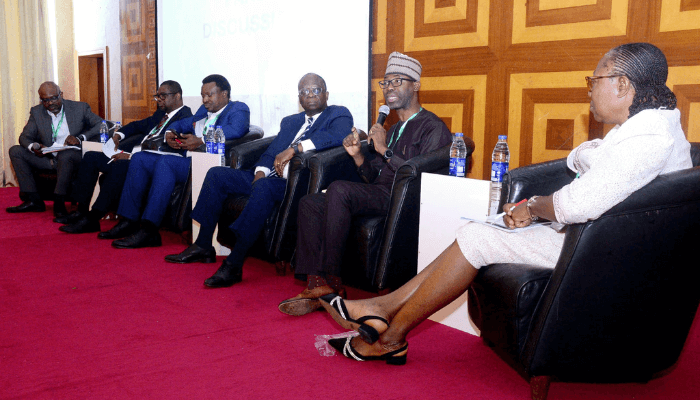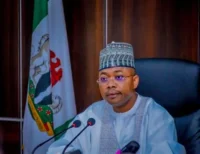Stransact Chartered Accountants, in partnership with the Nigeria Revenue Service (NRS), has advised corporate taxpayers and business owners on how best to adapt to Nigeria’s evolving tax environment, especially in light of the recently enacted 2025 Tax Reform Acts and the Federal Inland Revenue Service’s (FIRS) mandatory e-invoicing system.
The guidance came during a one-day seminar and workshop in Lagos themed “Navigating Nigeria’s New Tax Landscape: Understanding the 2025 Tax Reform Acts and Mandatory E-Invoicing for Taxpayers.” The event drew more than 250 physical and virtual participants, offering both technical insights and networking opportunities.
Stransact, one of Nigeria’s leading audit, tax, and consulting firms with a strong affiliation to RSM International’s global network of over 64,000 professionals in 120 countries, organised the programme to prepare businesses for the sweeping changes taking effect from January 1, 2026.
President Bola Ahmed Tinubu signed four key tax bills into law on June 26, 2025: the Nigeria Tax Act (NTA), Nigeria Tax Administration Act (NTAA), Nigeria Revenue Service (Establishment) Act (NRSA), and Joint Revenue Board (Establishment) Act (JRBA). These laws aim to simplify tax collection, lower compliance burdens for compliant businesses, expand the tax net, and position Nigeria as a more attractive investment destination.
For participants, the sessions were eye-opening. “The event opened my eyes to reliefs that come with the new tax laws. As an HR manager, I have learnt about the rent relief and some provisions on mortgages. I can now sensitise my colleagues so they can earn more when the law comes into effect,” said Ifeanyi Ndukwe, HR specialist at Lekoil.
The seminar featured in-depth panel discussions on three main topics: mandatory e-invoicing and FIRS’s Electronic Fiscal System (EFS); navigating compliance under the 2025 Tax Reform Act; and the practicalities of integrating e-invoicing into existing business systems.
The FIRS’s e-invoicing platform, also known as the Merchant-Buyer Model, officially went live on August 1 after a successful pilot phase starting in November 2024. Within two weeks, around 1,000 companies — 20 per cent of the over 5,000 eligible large taxpayers — had begun integrating with the platform. Companies with an annual turnover of N5 billion or more are being onboarded first, with a compliance deadline of November 1, 2025.
Discussions also tackled the controversial provision requiring oil and gas firms to deposit at least 30 per cent of their decommissioning and abandonment funds in escrow with a Nigerian bank before such costs can be deemed tax-deductible.
“The extra cost is just a misconception in my opinion,” said former FIRS director Gabriel Ogunjemilusi. “The new law ensures that 30 per cent of the fund is kept with a Nigerian bank, which can develop our country. It’s from existing funds that companies often keep in foreign escrow accounts.”
He explained that under the Petroleum Industry Act (PIA) 2021, operators are already required to maintain a decommissioning fund to manage the dismantling of ageing infrastructure. However, funds were often taken offshore.
Kehinde Kajesumo, Deputy Director and Head of Treaties & International Tax Policy at FIRS, stressed that the new rule is about environmental security and accountability. “By insisting on Nigerian banks, you can trace whether it’s actually being funded. Many Nigerian operators are struggling to fund it, but the goal is to ensure the money is available when needed,” he said.
The event also addressed the rent relief provision — 20 per cent of annual rent paid, capped at N500,000 — which prompted questions about eligibility for married couples paying jointly. Kajesumo assured participants that FIRS will issue clarifications on how the relief applies in such cases.
By providing practical insights and demystifying the reforms, Stransact and NRS aimed to help Nigerian businesses prepare for compliance while leveraging opportunities in the new tax framework. Stransact reaffirmed its commitment to delivering tailored financial and consulting solutions to help clients thrive in a rapidly evolving fiscal landscape.


















Leave a comment